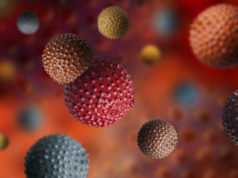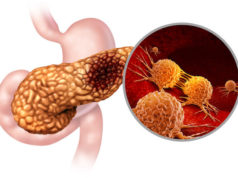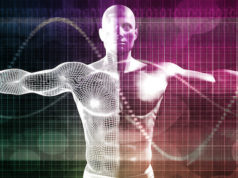 Fighting cancer is no easy feat. Both the disease and its treatment can make it harder for patients to find healthy things to eat. The body not only has a more difficult time tolerating foods, but also using the nutrients from those foods to strengthen itself. This is why it’s imperative that cancer patients maintain good nutrition throughout their treatment. Doing so will improve the overall quality of the patient’s health, making them feel better in the midst of harsh treatments and allowing them to boost their energy, maintain a healthy body weight, lower their risk of infection, and recover more quickly.
Fighting cancer is no easy feat. Both the disease and its treatment can make it harder for patients to find healthy things to eat. The body not only has a more difficult time tolerating foods, but also using the nutrients from those foods to strengthen itself. This is why it’s imperative that cancer patients maintain good nutrition throughout their treatment. Doing so will improve the overall quality of the patient’s health, making them feel better in the midst of harsh treatments and allowing them to boost their energy, maintain a healthy body weight, lower their risk of infection, and recover more quickly.
Of course, the nutrient needs of cancer patients are different for each person depending on the kind of cancer they have and the level of the treatment that they are undergoing. Typically, a patient’s cancer care team will help them to create a diet plan that meets all of their specific nutritional goals. No matter what your individual needs are, you will likely aim to eat a variety of foods that contain protein, carbohydrates, fat, water, vitamins, and minerals.

Nutrients
Proteins
We all need protein to help our bodies grow stronger, restore our body tissue, and keep our immune systems strong. When the body doesn’t get enough protein, it must search for fuel to keep it going, and oftentimes it gets that fuel by breaking down our muscles. Unfortunately, this muscle breakdown has detrimental effects on the body’s ability to quickly recover from illnesses or fight infections. This is why it’s especially important for cancer patients to consume more than enough protein throughout their treatment. After undergoing invasive and harsh procedures like surgery, chemotherapy, or radiation therapy, the body needs extra protein to help heal tissues and fight infection.
Protein is found in a variety of food sources, including fish, poultry, lean red meats, eggs, low-fat dairy products, nuts and nut butters, dried beans, peas and lentils, and soy foods.
Fats
Fats and oils are made up of fatty acids that act as a potent source of energy for the body. The body breaks down fats and uses them to store energy, insulate body tissues, and transport some types of vitamins through the blood.
Not all fats are created equally, though. Because some kinds of fats have negative effects on your heart and cholesterol levels, it’s important to choose monounsaturated and polyunsaturated fats rather than saturated or trans fats.
Monounsaturated fats can be found in oils like olive, canola, and peanut oils.
Polyunsaturated fats can be found in oils like safflower, sunflower, corn, and flaxseed oils. These are also the kind of fats that are found in seafood.
Saturated fats can mostly be found in animal sources like meat and poultry, whole or reduced-fat milk, cheese, and butter. Certain oils like coconut, palm kernel oil, and palm oil are also saturated fats. These kinds of fats can have negative effects on the body, such as raising your cholesterol levels and increasing your risk of heart disease. Therefore, less than 10% of your calories should come from saturated fat.
Carbohydrates
The body uses carbohydrates as its main source of energy. They not only provide us with the fuel that we use for physical activity, but also allow our organs to function at their best. It’s best to get our carbohydrates from fruits, vegetables, and whole grains, as these food sources also produce us with necessary vitamins and minerals, fiber, and phytonutrients. (Phytonutrients are chemicals found in plant-based foods. We don’t necessarily need them to survive, but consuming them helps to strengthen our overall health.)
Whole grains, or foods that derive from them, contain all the essential parts and naturally occurring nutrients of the entire grain seed. Whole grains are found in cereals, breads, and flours, and include barley, amaranth, buckwheat, millet, oats, quinoa, and wheat. It’s important to choose products that contain only whole grains, though as sometimes store-bought breads can use whole-wheat flour in combination with white flour.
Fiber is the part of plant foods that is resistant to the body’s digestive enzymes, which means that it helps to easily move food out of our body in a timely manner. Insoluble fiber allows waste to move quickly out of the body, and soluble fiber mixes with water to keep stools soft.
Water
The body needs water, liquids, and fluids in order to survive. When we don’t drink enough fluids, or if we lose fluids through vomiting or diarrhea, we can become dehydrated, the vitamins and minerals that keep our bodies going can become out of balance. Although water is found in many of the food sources that we consume, it’s important to also drink liquid in addition to the water we obtain from our food. In general, it’s recommended that we drink eight 8-ounce glasses of fluid each day in order to replenish our body’s cells and provide them with the fluid that they need. Of course, if someone is vomiting or having diarrhea, which can be unfortunate side effects of cancer treatments, they should consume extra fluids. All kinds of liquids, including soups, milk, and tea, can count towards the fluids we should consume daily.

Vitamins and Minerals
 In order for the body to use the energy we gain from foods, it needs a certain amount of vitamins and minerals. Most vitamins and minerals are found naturally in food, but there are also supplements available in both liquid and pill form. People who eat a well-rounded diet with enough of all the right foods are typically getting enough vitamins and minerals. However, it can be very challenging for cancer patients to be eating a balanced diet, especially since nausea and vomiting can be side effects of the treatment. Doctors may suggest adding a daily multivitamin and mineral supplement to help make up for the vitamins lacking from a full diet. It’s also important for cancer patients to be checked regularly for vitamin and mineral deficiencies, especially if they have been on treatment for a while and have thus consumed limited amounts of food.
In order for the body to use the energy we gain from foods, it needs a certain amount of vitamins and minerals. Most vitamins and minerals are found naturally in food, but there are also supplements available in both liquid and pill form. People who eat a well-rounded diet with enough of all the right foods are typically getting enough vitamins and minerals. However, it can be very challenging for cancer patients to be eating a balanced diet, especially since nausea and vomiting can be side effects of the treatment. Doctors may suggest adding a daily multivitamin and mineral supplement to help make up for the vitamins lacking from a full diet. It’s also important for cancer patients to be checked regularly for vitamin and mineral deficiencies, especially if they have been on treatment for a while and have thus consumed limited amounts of food.
Make sure to check with your oncologist before adding a multivitamin to your daily regimen. Some cancer patients need a large amount of vitamins in order to boost their immune system, but certain supplements can also get in the way of treatments like chemotherapy and radiation.
Antioxidants
Antioxidants help the body by attaching to free radicals and stopping them from attacking normal cells. Antioxidants, such as vitamins A, C, and E, selenium, zinc and some enzymes, can be found in a variety of fruits and vegetables. It’s usually not recommended to take a large amount of supplements or vitamin-enhanced foods while getting radiation or chemotherapy, so always talk to your doctor and oncologist to determine the right kind of supplement for you.
Phytonutrients
Phytonutrients, also known as phytochemicals, are derived from plant compounds like carotenoids, lycopene, resveratrol, and phyosterols. They can be found in fruits and vegetables, or in things that come from plants, such as tofu or tea. They are known for having properties that protect our health. It’s best to take in phytochemicals simply by eating the foods that contain them.
Herbs
Herbs are another popular way of supplement nutrition and aiding in the treatment of many diseases. While they have been used for hundreds of years in their natural forms, today they can be found in pills, liquid extracts, teas, and ointments. Although most of the products on the market are safe for general use, there are some herbs that can cause detrimental side effects. It’s important to check with your doctor before starting any kind of herbal regimen, especially if you are fighting cancer, as some herbs can get in the way of traditional cancer treatments like chemotherapy, radiation therapy, and even recovery from surgery.




























